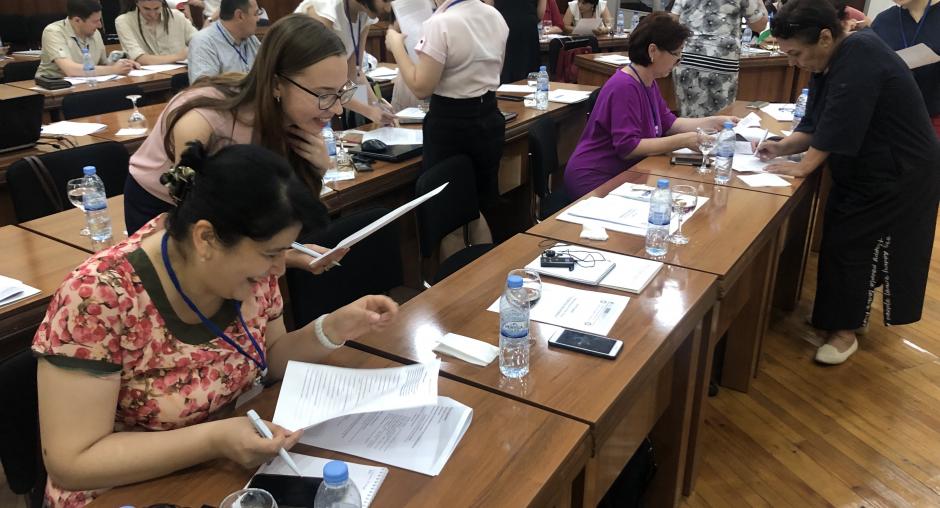OSCE Project Co-ordinator in Uzbekistan supports gender diversity in economic context expanding capabilities of young scientists and researchers

An OSCE Project Co-ordinator in Uzbekistan-supported Gender Economics International Summer School was conducted from 2 to 6 July 2019 in Tashkent for some 35 young employees of the public sector and non-governmental organizations from Uzbekistan, Kazakhstan, Kyrgyzstan and Tajikistan working on issues of women's empowerment and gender equality.
During the week, participants have been gaining knowledge on methods and tools for implementing gender-sensitive indicators, developing indices and indicators of economic development, measuring gender wage and pension gaps, gender financial inclusion, gender mainstreaming in public policies. Participants will present and discuss their research plans on the last day of summer school.
It is believed that the training program will strengthen the potential of young scientists and researchers in the theoretical and empirical approach when assessing various socio-economic impacts on society.
The importance of applying gender strategies for stimulating economic growth and improving social security systems was underlined by Juergen Becker, the OSCE Project Co-ordinator in Uzbekistan Senior Project Officer, at the opening panel on 2 July. “The OSCE recognizes that equal rights of women and men are essential to foster peace, security, and sustainable development. The OSCE congratulates Uzbekistan on recent steps, including the election of Xonim Tanzila Narbayeva as Chairperson of the Senate. The OSCE recognizes the recent statements of President of Uzbekistan on advancing women’s issues,” said Becker.
This Summer School was organized with the support of Sapienza University (Italy), the National University of Uzbekistan and the Tashkent Institute of Finance under the extra-budgetary project “Support to managerial capacity building of female managers” funded by Germany, Norway and the Netherlands.
